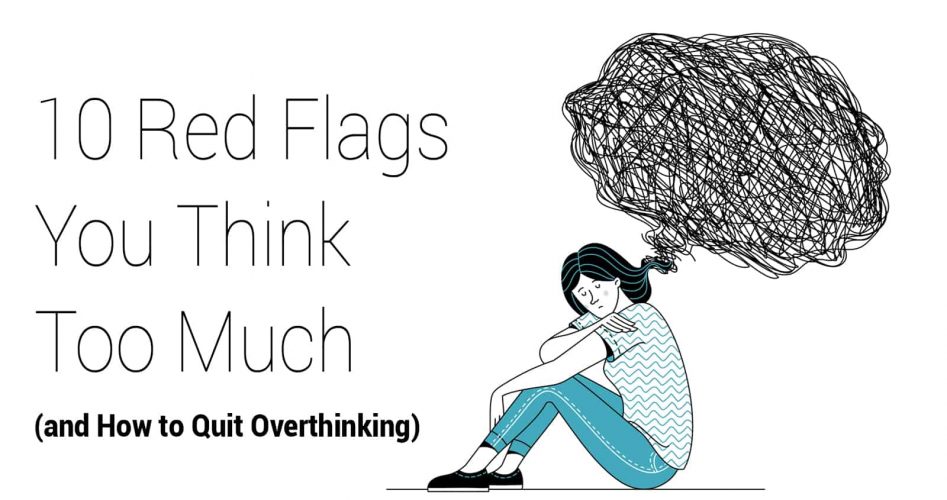We all want to make a relationship work–and ever better, for an entire lifetime! Sadly, the fact is that a lot of relationships don’t make it that far. You likely want to do everything you can to avoid having your partnership meet that fate!
Many strive to discover the secret to a happy relationship, and the answer is more complicated than just one be-all-end-all! Here’s how psychologists explain four things that make a relationship work.
1. Positive Thinking Helps Make a Relationship Work
Positive thinking is a powerful thing, capable of completely changing your perception of any given situation. It’s also something you need to have if you want to keep a relationship healthy.
This has to be a mutual choice between both partners in the relationship, says Licensed Psychotherapist, author, and radio show host Barton Goldsmith. Both of you have to decide to control how you carry yourselves to promote more positive behavior and manage moods together as a team.
Here are some tips for developing positive thinking that can help make your relationship work:
· Approach Problems With A Positive Mindset
When there’s a conflict or severe issue, pause and breathe before launching straight into combat mode. With positive motivation, problems are more likely to be solved through compromise and open-mindedness, says Monte Drenner, a licensed mental health counselor.
· Share Positive Events In Your Life
When good things happen, seek out your partner and tell them about it. Numerous studies have found that sharing these positive points in your life – especially when you feel excited to tell your partner the great news – can facilitate a stronger bond.
· Foster Good Self-Worth
Positive thinking applies to each partner, too. You must have healthy self-worth that isn’t attached to having a partner or how your partner makes you feel. If you rely too much on your partner for happiness, things will fall apart pretty quickly! You need to feel secure enough in yourself that other people’s opinions don’t damage your self-esteem, says School of Love NYC founder and dating coach Monika Parikh.
· Reminisce On Times Of Laughter
Did you know that studies have shown that laughing together and then looking back on that laughter together is great for a relationship? Dr. Megan Stubbs, a relationship and intimacy expert, states that asking each other about your favorite happy memories together is a great way to begin reminiscing. The shared emotions and memories bring you together and can even make you think of the future to come.
2. Communication Can Make a Relationship Work
There’s a reason that so many people say communication is the secret to a happy relationship. No human being can read minds, so you need to talk to your partner about different concerns you have or opinions you hold, says Goldsmith.
· Share Your Downs
Being vulnerable can be scary, but it’s part of communication. Your partner can’t know how you feel if you don’t tell them. Licensed psychologist, Rapport Relationships founder, and dating coach, Dr. Jennifer B. Rhodes, even goes so far as to state that letting down your guard can be a huge part of intimacy as a whole.
· Don’t Make Assumptions
No matter how well you believe, you know your partner, making assumptions is a surefire way to land yourself in confusing misunderstandings. Lasting Connections founder and psychologist Sameera Sullivan points out that mind reading in this manner can be dangerous and that it’s much better to ask instead of assuming to avoid hurting anyone in the process.
· Talk About Boundaries
Knowing your limits is essential in a relationship, and many relationships will suffer from silence and ignoring these problems than they will ever suffer from violence, says Parikh. Don’t ignore your partner’s crossing of limits or things that hurt you. Talk about them and be direct and clear about where your boundaries are. Don’t become compliant. Avoiding a fight isn’t as positive as it sounds, and couples that fight healthily and regularly often have a stronger relationship. You should feel comfortable discussing these things with your partner; if not, that could be a huge red flag.
3. Positive Reinforcement
Reinforcement is the act of continuing to make it clear that you love and appreciate your partner. It’s easy to accidentally fall out of the habit of being sweet and romantic to someone you’ve been in a relationship with for years and years.
But leaving the honeymoon phase doesn’t mean the sweetness should end, says Goldsmith. If anything, you need to continue working on your relationship forever, and you shouldn’t become complacent in the way you show your affection. Here are some ways to make sure positive reinforcement is still a part of your relationship:
· Encourage And Support Your Partner
Offering words of encouragement shows that you think of your partner’s experiences and pay attention to what they’re going through. Expressing admiration at their improvements or successes and being supportive in more challenging times tells your partner that you care.
· Surprise Your Partner Now And Then
These surprises show you’re thinking of your partner outside of the typical red-letter days. Clinical psychologist Joshua Klapow, Ph.D., also The Kurre and Klapow Show’s host, recommends tangible romantic gestures. Instead of sending emails or texts, buy tiny gifts, write small letters, or help them check something off their to-do list!
· Schedule A Date Night
Date nights are a break from mundane, everyday life, states Maple Holistics Health and Wellness Expert Caleb Backe. You’re choosing to spend quality time with your partner outside of your daily life. They’re your partner in relaxation and the hustle and bustle. Plus, it’s fun to get that time to yourselves to hang out! It spices things up. You get to talk to each other and rekindle a spark. There’s no denying the positive effects these dates have, so make them a regular thing!
· Hold Hands In Public
Klapow recommends that you and your partner hold hands in public – just like you did when you first began dating! This act is intimate but public, a display that you and your partner are together. It’s also a natural way to bond through touch while indicating that you are happily there for your partner, always!
· Kiss Each Other More Often
When you first started courting your significant other, kissing was probably a highlight of your dates. As time goes on, in most relationships, make-out sessions are replaced by quick, chaste pecks on the lips or a kiss on the cheek. Sarah A. Intelligator, a Family Law lawyer and owner of the Law Offices of Sarah A. Intelligator, recommends that you never stop kissing each other as you did before. When you eliminate these heated shows of affection, you’re subconsciously sending the message that your partner is less desirable to you, and that can sour intimacy and fun.
· Keep Romance Alive
Just because you’re comfortable with each other doesn’t mean you shouldn’t still flirt and be sappy partners in love! Keep buying flowers. Keep doing romantic things. Be embarrassingly romantic. Act like you’re still in the early “chase” stages of your relationship. You’d be surprised how much that can help keep the spark alive!
4. Be Your People
When you’ve been with someone for a very long time, it’s easy to slip into a state where you don’t do anything without the other. You become almost interchangeable and, in the worst-case scenario, could get codependent.
This is very unhealthy because the common idea that a partnership is two halves making a whole is not accurate. A partnership is two whole people coming together out of love and appreciation. Your entire life shouldn’t be about your partner, and you shouldn’t be relying on them to give you everything you need. That’s too much pressure for anyone, and it’s blatantly unfair to yourself, too.
Here are some tips for being your own person while still being a unified couple in a relationship:
· Give Each Other Space
Everyone needs alone time. Even the happiest couples need individual time to themselves, says Parikh. Learn to be comfortable and feel positive without your partner next to you at all times. Lead your own life! Have your own hobbies! Have your own me-time! And of course, respect that your partner also needs all of that, too.
· Assess Yourself And Grow On Your Own
You need to be a strong person on your own, continually learning and growing with the years, to maintaining a healthy relationship. Your partner should be doing the same. That’s why you need to evaluate and assess yourself, says Amy Bishop, M.S., a couples therapist. There’s no denying that even the very best people can have negative or questionable behavior. We all have toxic or bad sides to us because we’re human and flawed. Your job is to continue learning from your mistakes and being aware of the things you need to work on. Put effort into growing and developing as a person, and your relationship will grow, mature, and become healthier with you. Don’t let your pride stop you from acknowledging your weaknesses!
· Have Separate Friends
According to research, the least positive relationships most likely to fall apart are those where you have all the same mutual friends. Think about it – you have the same support group and have no social circles of your own, which is far from a positive factor. Worse still, if the relationship falls apart, the friend group is caught in an uncomfortable situation. Mutual friends are good, but have separate circles on top of that, too!
· Take Care Of Yourself
You’re a grown adult, and you don’t need another human being to look out for you all the time. You get to decide what you want and need and how to spend your time. Yes, you should take your partner into account when your decisions or actions affect them. But if it’s just about you, then be independent! You don’t need your partner to help you with everything or be there for every second of your life, says Parikh. Having one person as your only go-to is toxic for them and for you. Besides, you can always tell your partner about your individual adventures later!
Final Thoughts On Some Things That Make A Relationship Work
Making a relationship works takes effort. You need to stay positive, communicate well, make sure your partner knows you love them, and continue to work on yourself. It might not be easy, but if you love the person you’re dating or married to, it’s certainly worth it!









